Politburo member and Prime Minister Pham Minh Chinh visited booths displaying Halal-quality products from Vietnam within the framework of the Conference "Promoting internal strength, enhancing international cooperation to boost the development of Vietnam's Halal industry", on October 22, 2024_Photo: VNA
In Arabic, “Halal” means lawful, lawful, meaning things that are “permitted” according to the religious standards of Islam, based on the Quran and Sharia law (1) . Halal tourism is a special tourism segment, aimed at serving the needs of the Muslim tourist market. In other words, this is a type of tourism that strictly adheres to the principles and regulations of Islam, including services such as cuisine , accommodation, transportation, entertainment, shopping with the guarantee that all are in accordance with Halal standards.
Currently, there are similarities and differences in the concepts of three types of tourism : “Islamic tourism”, “Halal tourism”, and “Muslim-friendly tourism” (2) . However, these types all have the common goal of attracting Muslim tourists and are all based on the Islamic Sharia law. The fundamental difference between these types of tourism lies in the way they are implemented. “Islamic tourism” is mainly trips related to religious purposes, where tourists seek religious experiences, such as visiting holy sites. “Muslim-friendly tourism” is destinations that meet the travel needs of the Muslim community, but do not necessarily comply with all Halal standards. Meanwhile, “Halal tourism” is organized strictly according to Halal regulations and standards, ensuring that all tourism services provided are in accordance with the specific requirements of Islamic Law (3) .
Halal tourism development trends in the world
Currently, Halal tourism is known as a new tourism trend and is growing rapidly globally. According to many studies, Halal tourism plays an important role in the recovery of the world tourism industry after the COVID-19 pandemic. According to the Future Market Panorama Report, the value of the global Halal tourism market in 2018 reached 229.4 billion USD; despite the decline during the COVID-19 pandemic, by 2023, this market has recovered and grown strongly, reaching 266.3 billion USD. It is forecasted that in 2024, this figure will reach 276.7 billion USD and is estimated to increase to 417.6 billion USD by 2034, with an average annual growth rate in the period 2024 - 2034 reaching 3.6% (4) .
The “boom” of Halal tourism globally is driven by a number of main reasons: 1- The population of Muslim countries is growing rapidly, twice as fast as the non-Muslim population. In 2024, the Muslim population is estimated to reach 2.12 billion people and by 2034 it is forecast to reach 2.47 billion people (accounting for nearly 30% of the world's total population) (5) ; 2- The trend of Muslims traveling abroad is increasing, especially among young and middle-aged people. According to the Global Muslim Travel Index (GMTI) report, the number of Muslim tourists reached 110 million (in 2022), 140 million (in 2023), in 2024 it is estimated to reach 160 million people and is forecast to reach 230 million by 2028 (6) ; 3- The spending power of Muslim tourists is increasing, especially tourists from Middle Eastern countries such as the Gulf Cooperation Council (GCC) countries, who are considered luxury customers with high spending ability and long stay. According to statistics from the World Tourism Organization (WT), the spending level of tourists from the Middle East to Europe is 5.6 times higher than the average spending level of global tourists (2018). In particular, the average time for tourists from Middle Eastern countries to travel is about 10 - 15 days, with an average spending level of 1,500 - 1,700 USD/person.
Realizing the potential and prospects of this trend, many countries in the world have promoted the trend of investing and developing Halal tourism and have achieved positive results. In recent years, countries such as Singapore, Taiwan (China), Thailand, Australia, Japan and South Korea have been ranked in the top 20 favorite tourist destinations of Muslims not belonging to the Organization of Islamic Cooperation (non-OIC), and are also in the top 50 tourist destinations according to the GMTI ranking in 2024.
Singapore has achieved its position as a regional Halal tourism hub through its focus on investing in the construction of Changi International Airport and a Muslim-friendly Halal tourism ecosystem. Taiwan (China) launched its “New Southbound Policy” (NSP) in 2016, in which Halal tourism development is one of the four key priorities. Thailand is implementing a strategy to become a leading Halal tourism hub in the Association of Southeast Asian Nations (ASEAN) region. Australia has also succeeded in attracting billions of dollars from international Muslim tourists through its initiative to build “Muslim-friendly holiday programs”. Japan has implemented the “Visit Japan” program since 2003, focusing on developing Halal tourism and won the 2016 World Halal Tourism Award held in Abu Dhabi (United Arab Emirates). Korea considers Halal tourism as a strategic option to boost the development of the national tourism industry, especially through the promotion of Halal cuisine. These efforts not only help to enhance the status of countries in the eyes of Muslim tourists, but also contribute significantly to the sustainable and diversified development of the global tourism industry.
Advantages and difficulties for Vietnam in developing Halal tourism
Vietnam is a non-Muslim country (where Islam is not the official religion as in typical Muslim countries, such as Malaysia, Indonesia, or Saudi Arabia). Therefore, building and developing the tourism industry to target the Muslim market may have less stringent standards than in Muslim countries. Although Halal tourism encompasses all three related aspects, more emphasis is placed on the concept of “Muslim-friendly tourism”. This means that developing Halal tourism in Vietnam focuses on creating tourist destinations that meet the needs of the global Muslim community, but does not necessarily strictly adhere to all Halal standards as in Muslim countries. However, the practical implementation of this type of tourism in Vietnam is assessed to have certain advantages and difficulties.
About advantages
Firstly, tourism development is one of the key strategies of the Party and State of Vietnam. Resolution No. 08-NQ/TW, dated January 16, 2017, of the Politburo, “On developing tourism into a spearhead economic sector”, clearly identified the goal of developing tourism into a spearhead economic sector, contributing to promoting the development of other economic sectors. Decision No. 147/QD-TTg, dated January 22, 2020, of the Prime Minister, on approving the “Vietnam Tourism Development Strategy to 2030”, emphasized the importance of developing the tourism industry in the context of the country's transformation after the COVID-19 pandemic. In addition, the Government issued Resolution No. 82/NQ-CP, dated May 18, 2023, on key tasks and solutions to effectively and sustainably restore and develop tourism, thereby creating opportunities for other related fields.
Second, the cooperation between Vietnam and Islamic countries is increasingly expanding, especially in the fields of politics, diplomacy and economics. High-level visits between leaders of Vietnam and Islamic countries have created a solid foundation for promoting cooperation in various fields. Currently, Vietnam has signed the Comprehensive Economic Partnership Agreement (CEPA) with the United Arab Emirates (UAE) and is preparing for negotiations on a free trade agreement (FTA) with Turkey. In particular, Decision No. 10/QD-TTg, dated February 14, 2023, of the Prime Minister approved the Project "Strengthening international cooperation to build and develop Vietnam's Halal industry by 2030", creating a strong driving force for the development of the Halal industry, including Halal tourism.
Third, Vietnam possesses rich and diverse tourism resources and many famous destinations that attract international tourists. Considered a safe and friendly destination with many natural landscapes recognized by the United Nations Educational, Scientific and Cultural Organization (UNESCO), along with a rich and unique culinary culture, Vietnam has attracted a large number of international tourists. In 2023, Vietnam welcomed 12.6 million international visitors (3.4 times higher than in 2022) (7) . Tourists from countries such as Korea, China, the US, Japan, and many other countries have contributed significantly to the recovery of the tourism industry. Vietnam was also honored as the "World's Leading Heritage Destination" in 2023, affirming its position on the international tourism map.
Fourth, the Halal tourism market in Vietnam still has a lot of potential for exploitation. With its geographical location close to countries with large Muslim populations in Southeast Asia, South Asia and the South Pacific, Vietnam has many opportunities to develop Halal tourism. In particular, the Southeast Asia region with about 263 million Muslims (accounting for 14.6% of the total number of Muslims in the world) will be a close and important market for promoting close tourism cooperation between countries in the region and Vietnam. The South Asia region, especially India, with its large Muslim community, is also a market with great potential. With about 195 million Muslims, India will be an important market for Vietnam when promotion activities and aviation connections are enhanced. In addition, the Halal tourist market from the Middle East and Africa, especially from GCC countries, is also a market with great potential that needs to be effectively exploited in the coming time.
Fifth, Vietnam's tourism infrastructure is increasingly being invested and expanded, especially connecting direct flights to Muslim countries. Vietnamese airlines such as Vietnam Airlines, Vietjet, ... together with international airlines such as Qatar Airways, Emirates, Turkish Airlines have opened many direct flights from Muslim countries to Hanoi, Da Nang and Ho Chi Minh City, creating favorable conditions for Muslim tourists to come to Vietnam.
Sixth, on August 14, 2023, the Government issued Resolution No. 127/NQ-CP on the application of electronic visas for citizens of countries and territories; international border gates allow foreigners to enter and exit with electronic visas. This is a favorable factor to help Vietnam attract more international tourists, including Muslim tourists. This policy not only creates favorable conditions for tourists, but also removes visa barriers, helping to improve Vietnam's competitiveness in the international tourism market.
About difficulties
Firstly, Vietnam does not have a comprehensive national strategy for Halal industry development, including Halal tourism. Although Vietnam currently has the “Vietnam Tourism Development Strategy to 2030” and the Project “Enhancing International Cooperation to Build and Develop Vietnam’s Halal Industry to 2030”, the Halal tourism model has not yet been specifically and specifically oriented in the industry development strategies. In addition, the lack of clear goals and specific actions for Halal tourism makes it difficult to implement activities in this field.
Second, infrastructure and technology serving Halal tourism are still very limited. Airports, seaports and tourist facilities such as tourist attractions, shopping malls, restaurants, hotels, rest and entertainment areas still do not meet the basic standards of Muslim tourists. Many tourist destinations still lack prayer areas, hand washing areas before praying and toilet areas to ensure the separation between men and women according to Halal standards. In addition, Halal food establishments, which are a decisive factor in Halal tourism, are still very few and have not achieved the necessary level of trust due to the lack of international Halal certificates. This is clearly seen in big cities such as Hanoi, Ho Chi Minh City, Da Nang and famous tourist destinations such as Ha Long, Sapa, Trang An.
Third, the awareness of Halal tourism among stakeholders is still not taken seriously and there is not enough investment. Businesses in the domestic tourism service supply chain and people still lack information and do not fully understand Islamic culture and Muslim tourism standards. In addition, state management agencies and local authorities have not yet implemented drastic solutions to promote the development of Halal tourism, leading to a very limited number of Muslim tourists to Vietnam. This is hindering the exploitation of the great potential of Halal tourism, which can significantly contribute to the socio-economic development of localities.
Fourth, information about Vietnamese tourism in Muslim countries, especially in the Middle East - where there is a potential source of Muslim tourists - is still very limited. Tourism promotion and advertising activities to this market have not been carried out systematically and regularly. This poses an urgent need to strengthen promotional campaigns, build images and connect with the Middle East market, in order to attract more Muslim tourists to Vietnam. In the context of globalization and increasingly fierce competition, Vietnam needs to have specific, strong and synchronous development policies to exploit and promote the development of Halal tourism, thereby opening up great opportunities for the national tourism industry.
Muslim tourists are delighted with the beauty of the world natural heritage Ha Long Bay_Source: baoquangninh.com.vn
Orientation for Halal tourism development in Vietnam
In the orientation of developing the Halal industry in Vietnam, at the Conference "Promoting internal resources, enhancing international cooperation to promote the development of Vietnam's Halal industry" (October 2024), Prime Minister Pham Minh Chinh affirmed: Vietnam has advantages in geographical location, favorable natural conditions with a long coastline, diverse ecosystems... as well as advantages in tourism development (8) . These are favorable conditions to promote the development of Halal tourism in Vietnam in the coming time with the need to focus on the following solutions:
Review and improve institutions, strategies and policies to support and promote the development of Halal tourism. It can be affirmed that the development and promulgation of the "National Strategy for the Development of the Halal Industry in Vietnam" and the "National Action Program for the Development of Halal Tourism" are really necessary. Currently, the Halal industry in Vietnam is still in its infancy and lacks a clear strategic direction. Meanwhile, the development of Halal tourism requires a diverse supply of Halal products, from food, beverages to pharmaceuticals, cosmetics and logistics. The development of the "National Strategy for the Development of the Halal Industry in Vietnam" and the "National Action Program for the Development of Halal Tourism" will create a solid foundation, establish a comprehensive plan, and contribute to synchronizing development solutions for the Halal industry in general and Halal tourism in particular. At the same time, this strategy also ensures a "dual goal": both meeting the needs of Halal tourism development and orienting the development of Vietnam's export products to the global Halal market.
Building a Vietnamese Halal standard system in harmony with international Halal standards throughout the entire Halal tourism supply chain. From food (the core element of Halal tourism), infrastructure (such as restaurants, hotels and accommodation facilities), entertainment venues, to human resources and tourism products and services is extremely necessary. This not only ensures the quality of service for Muslim tourists, but also builds trust and prestige for Vietnam in the international Halal tourism market.
Research on the construction and establishment of the Vietnam Halal Research and Development Center. Currently, Halal standards differ between different industries, sectors and Muslim countries. Therefore, a national center for in-depth research on Halal will be the direct focal point in charge of policy advice to the Government in promoting the development of the Halal industry in Vietnam. This will be a place to gather experts to conduct multi-disciplinary and interdisciplinary research to enhance understanding and spread awareness of Halal. This center will act as a bridge, promote international cooperation with Muslim countries, seek international support in research, policy advice and implementation of Halal industry development initiatives, and promote Halal tourism in Vietnam.
Implement incentive and support mechanisms from the central to local levels to mobilize social resources for Halal tourism development. In fact, it is not easy to separate facilities dedicated to Halal tourists from general tourists. Therefore, the Government and local authorities need to have financial incentives, technical guidance and Halal knowledge training so that tourism facilities can integrate Halal service areas into their existing facilities. This will increase the number of Halal tourist stations, thereby stimulating supply and demand in the process of Halal tourism development.
Training specialized human resources, contributing to the sustainable and effective development of Halal tourism in Vietnam. First of all, it is necessary to focus on improving the knowledge and capacity of the state management and business administration staff in the field of Halal tourism. Educational management agencies need to include in the training program content on Islamic culture, history and relations with Islamic countries, characteristics and standards of serving Muslim tourists at universities and vocational training institutions to ensure that Halal tourism human resources are trained systematically and in depth. In addition, training units need to pay attention to the quantity and reasonable structure in training tourism human resources, especially meeting the diverse needs of languages; at the same time, training a team of tour guides, chefs and staff directly serving Halal tourism, to meet the increasingly high standards and demands of this market.
Developing technical facilities, creating a solid foundation to launch and attract Halal tourists to Vietnam. The Government and localities need to promote public-private partnerships to utilize State and private sector resources in building necessary infrastructure (such as prayer areas, hand-washing areas before praying and hygiene areas that meet Halal standards at international airports, seaports, public entertainment areas and tourist attractions). At the same time, it is necessary to encourage tourism businesses to integrate areas serving Halal tourists in accommodation, food and entertainment establishments to synchronize and complete the system of facilities and techniques serving Halal tourism.
Establish a regular inspection and monitoring system at tourism establishments to ensure accuracy and reliability. This is an important requirement because Halal tourists not only seek tourism experiences, but also have special needs and requirements based on their faith. Therefore, compliance with strict Halal standards in the tourism supply chain is necessary to meet the expectations and build trust of Halal tourists, contributing to sustainable and long-term tourism development.
Develop specialized Halal tourism products that fully meet the requirements of Halal standards. Accordingly, research and invest in building “Halal holiday” tourism products on the basis of ensuring that famous tourist destinations in Vietnam, especially beach resorts, meet Halal conditions. This will contribute to enhancing the international community’s recognition of Vietnam as a friendly destination and attracting global Muslim tourists.
Develop high-end tourist areas to meet the specific needs of Muslim tourists. These high-end resort tourism services need to ensure privacy and strictly comply with Halal standards. At the same time, it is necessary to focus on improving the quality of Halal tourism products and services to ensure that these products and services strictly comply with Halal standards throughout the entire Halal tourism supply chain.
Developing cultural tourism products that are unique to Vietnam but still based on Halal standards. Products such as Vietnamese cuisine, medicinal herbs, spices and silk can be developed with a commitment to Halal standards, contributing to building a prominent brand of Vietnam's tourism industry for Muslim tourists. At the same time, completing the tourism service supply chain, providing Halal food to logistics services and tourist destinations, will not only meet the domestic Halal tourism demand, but also promote the export of Vietnamese Halal-standard products to the international market.
Applying digital methods and technologies to promote tourism products to markets of Muslim countries . Promoting the role of Vietnamese representative agencies and overseas Vietnamese communities in promoting tourism is also a key factor, contributing to creating a strong spread. More importantly, Halal tourism development needs to be closely linked with religious management and foreign tourist management. Because the development of the Halal supply chain can lead to significant changes in social structure and migration, leading to new needs related to religious practices of the Muslim community. Local authorities need to improve their understanding of religious management to ensure sustainable Halal tourism development, while ensuring security, order and social safety.
It can be seen that Halal tourism will contribute to exploiting the potential of the global Halal market, including the Muslim tourist market, as Prime Minister Pham Minh Chinh affirmed: "Vietnam aims to develop Vietnam's Halal industry into a strong industry, making Vietnam an indispensable destination on the global Halal map, an important link in the supply chain of Halal products and services in the world" (9) ./.
---------------------
(1) Han Thi Thanh Lan: "Overview of Islamic culture and Islamic countries in the world", Proceedings of the national conference on Islamic culture and prospects for the development of the Halal industry in Vietnam , jointly organized by the Institute of African and Middle East Studies and the Institute of Religious Studies, Finance Publishing House, Hanoi, 2023
(2) Standing Committee for Economic and Trade Cooperation of the Organization of Islamic Cooperation (COMCEC): “Muslim Friendly Tourism: Understanding the Demand and Supply Sides in the OIC Member Countries”
(3) Battour, M: “Halal Tourism: What Is Next For Sustainability?”, Journal of Islamic Tourism , January 2021, pp. 79 - 90
(4) Rakotoarisoa Maminirina Fenitra, Sri Rahayu Hijrah Hati, Ghazala Khan, Hapsari Setyowardhani, Sri Daryanti, Thurasamy Ramayah: “Determining intention to visit halal destinations from the perspective of the push-pull-mooring framework” (Temporarily translated: ), Journal of Hospitality and Tourism Insights , ISSN: 2514-9792, date October 15, 2024
(5), (6) WiT: “Muslim travel market set for 230 million international arrivals by 2028, with an expenditure of USD 225 billion”, https://www.webintravel.com/muslim-travel-market-set-for-230-million-international-arrivals-by-2028-with-an-expenditure-of-usd-225-billion/#:~:text=The%20GMTI%202024%20projects%20that,population%20growth%20during%20this%20period
(7) Vietnam National Administration of Tourism, 2023, International visitors to Vietnam reached 12.6 million, 3.5 times higher than in 2022, https://thongke.tourism.vn/index.php/news/items/147
(8), (9) See: Pham Tiep: "Making Vietnam a destination, a link in the supply chain of Halal products", VNA/Vietnam +, October 22, 2024, https://www.vietnamplus.vn/dua-viet-nam-thanh-diem-den-mat-xich-trong-chuoi-cung-ung-cac-san-pham-halal-post986787.vnp
Source: https://tapchicongsan.org.vn/web/guest/the-gioi-van-de-su-kien/-/2018/1097402/phat-trien-du-lich-halal-va-ham-y-chinh-sach-cho-viet-nam.aspx


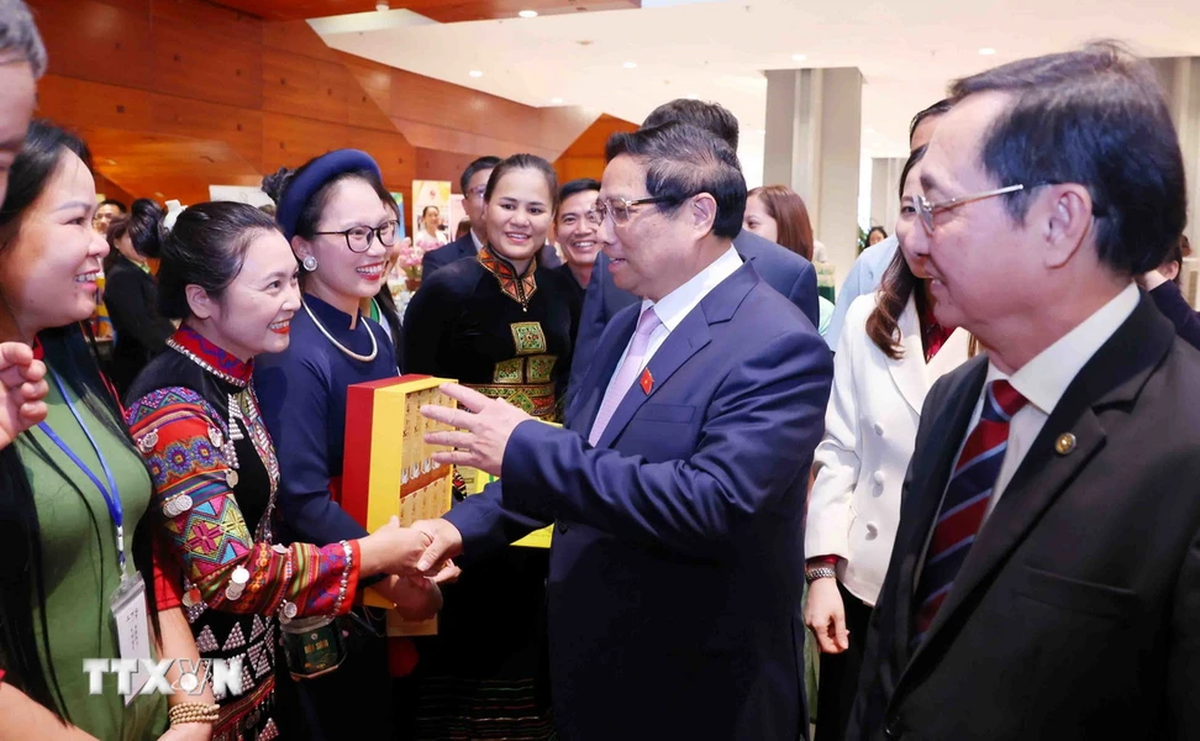
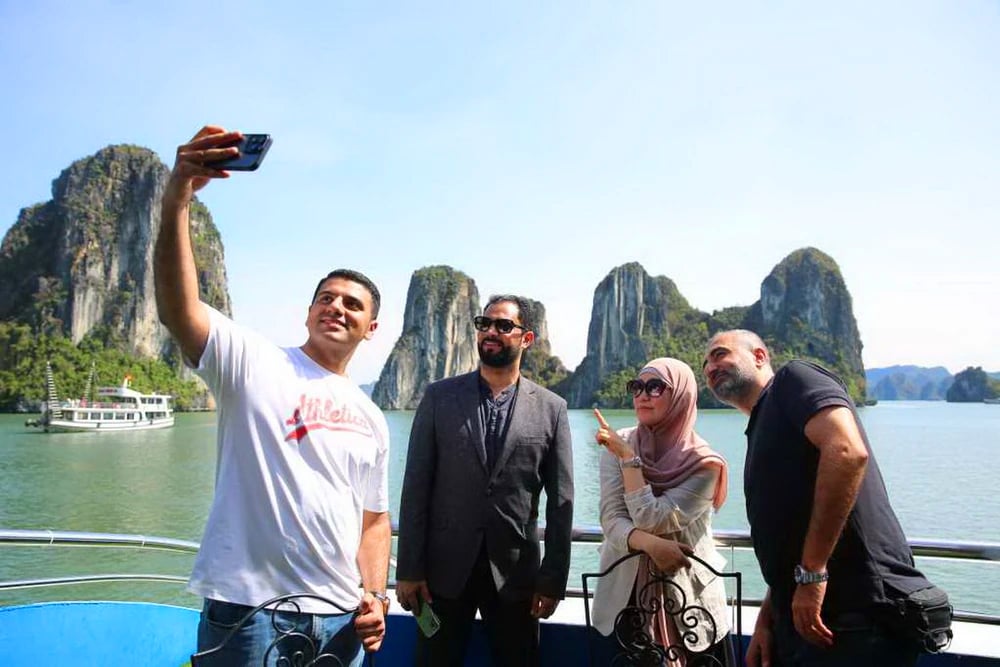

![[Photo] Prime Minister Pham Minh Chinh attends a conference to review one year of deploying forces to participate in protecting security and order at the grassroots level.](https://vphoto.vietnam.vn/thumb/1200x675/vietnam/resource/IMAGE/2025/11/12/1762957553775_dsc-2379-jpg.webp)
![[Photo] Highways passing through Dong Nai](https://vphoto.vietnam.vn/thumb/1200x675/vietnam/resource/IMAGE/2025/11/12/1762940149627_ndo_br_1-resize-5756-jpg.webp)



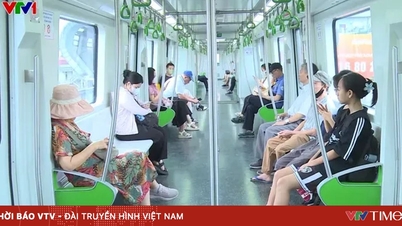

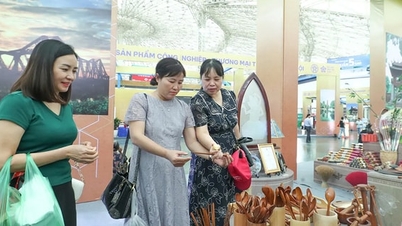

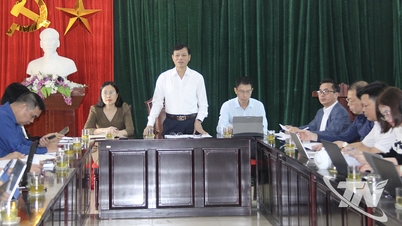

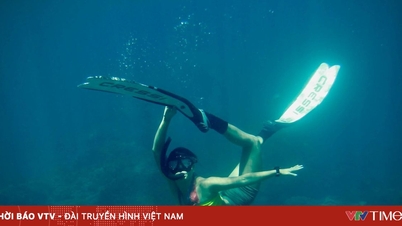
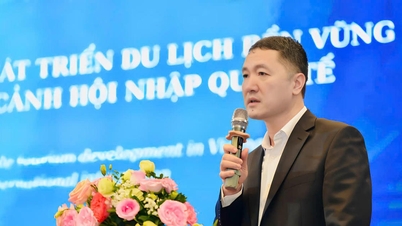

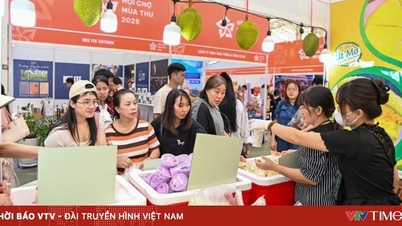
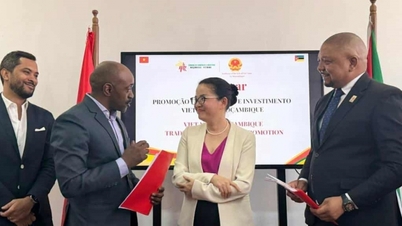

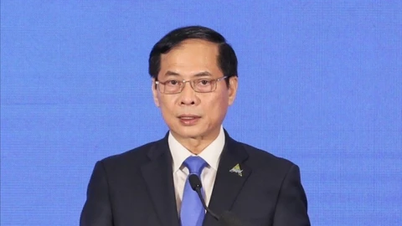


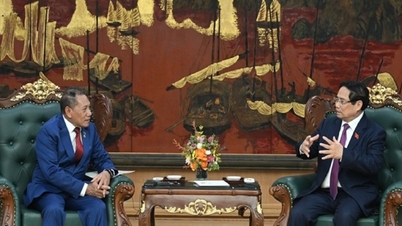
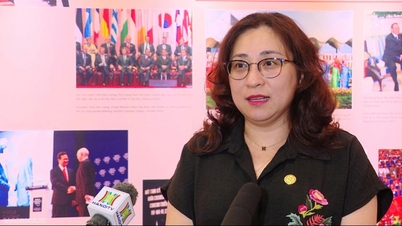
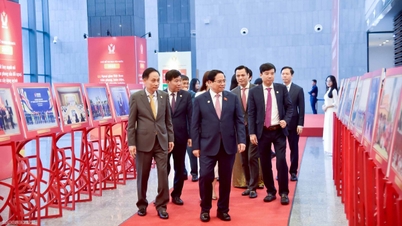













































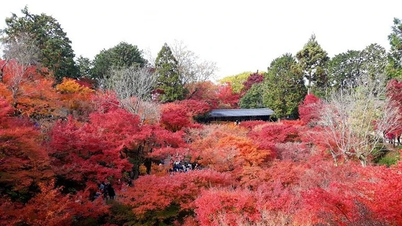









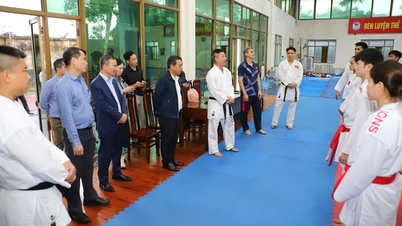

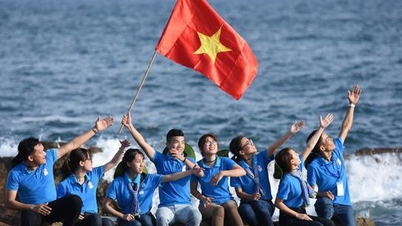




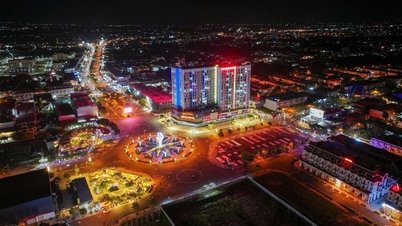
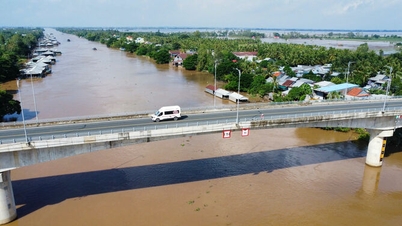

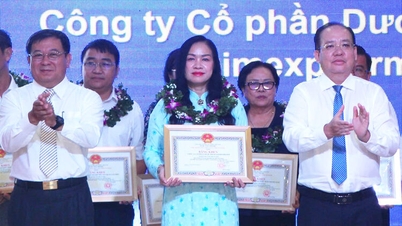
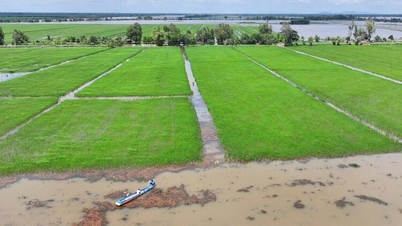






![Dong Nai OCOP transition: [Article 3] Linking tourism with OCOP product consumption](https://vphoto.vietnam.vn/thumb/402x226/vietnam/resource/IMAGE/2025/11/10/1762739199309_1324-2740-7_n-162543_981.jpeg)




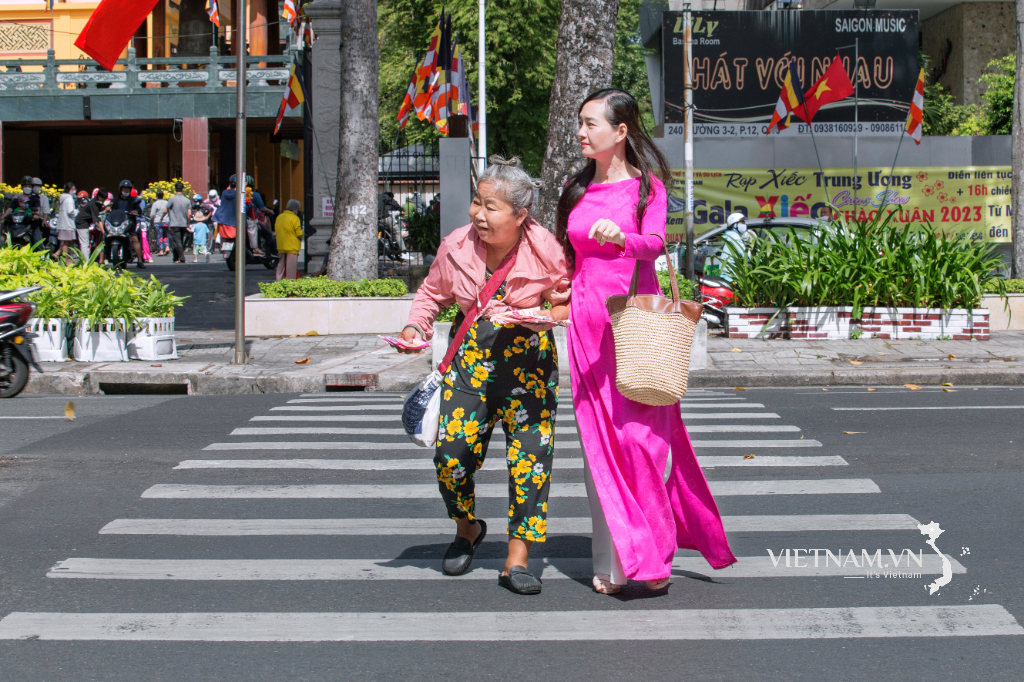


Comment (0)